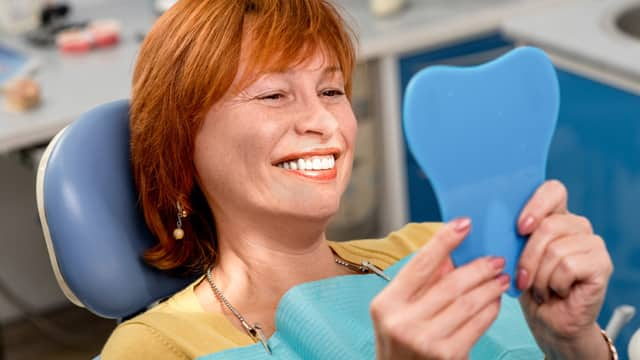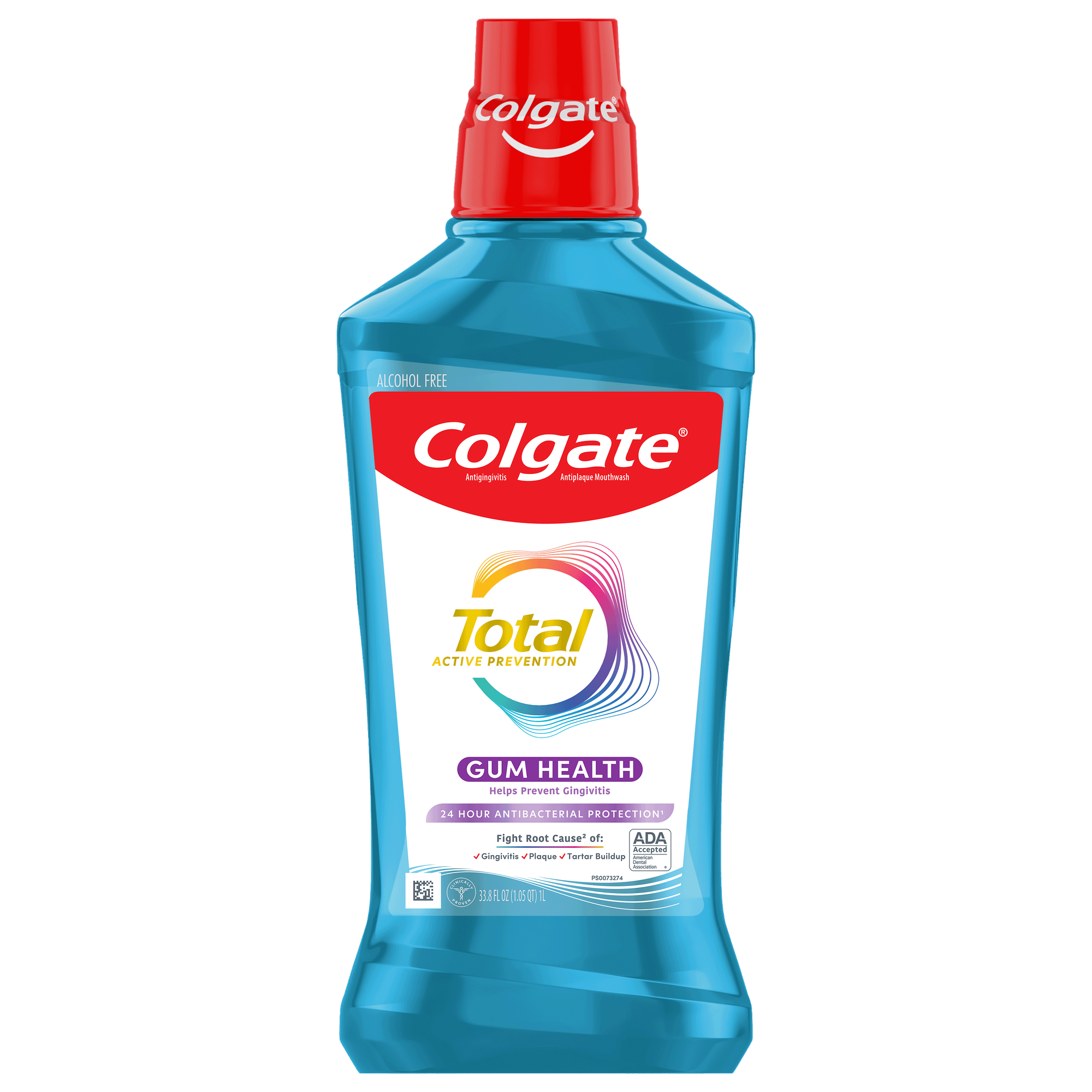What Are Dentures?
Dentures are replacements for missing teeth that can be taken out and put back into your mouth. According to the U.S. National Library of Medicine, there are two types of dentures: complete (or full) and partial. Complete dentures fit comfortably over your entire upper or lower jaw, while partial dentures replace a single tooth or a few teeth.
What Are Dentures Made Of?
While there are a few denture materials, they’re typically made from plastic, specifically acrylic resin. You may also have the option of getting porcelain dentures, which last longer; however, acrylic dentures are stronger. That’s because acrylic adheres more securely to the denture base and is easier to adjust. Acrylic resin is also significantly less expensive than porcelain and much lighter in weight.
The disadvantage of teeth made from acrylic resin is that they wear faster than porcelain teeth, which causes changes in the way the teeth make contact with one another. As a result, you may need to replace dentures made from acrylic resin teeth every five to eight years.
The Framework of Dentures
Dentures require a framework to support them, which is usually called a full or partial plate. Removable partial dentures generally involve attaching the replacement teeth to pink or gum-colored plastic bases. They may also have a framework that attaches and connects to your teeth made of metal or a more natural-looking material.
As far as making the dentures, it depends on what type of denture you’re receiving. There are three types, all involving different processes for the patient:
Conventional
This is a type of fully-removable denture that takes several months to settle into your mouth, as your oral care professional must remove your remaining teeth and allow your tissue to heal before placing them. According to the University of Rochester Medical Center, you will likely have to wait four to eight weeks after your teeth have been removed before your oral care professional places the conventional dentures.
Immediate
This is a type of removable denture your oral care professional can place in your mouth on the same day your remaining teeth are removed. Compared to conventional dentures, this is a quick process because your oral care professional will take measurements and create models of your jaw before the day they remove your teeth. This means that you won’t have to be without teeth as your jaw heals; however, you may need to have the denture adjusted or remade once your jaw recovers.
Overdenture
Overdentures are a type of denture that fits over a small number of your existing natural teeth. Because your natural teeth are part of your jawbone, they provide stability and support for the denture.
How to Care For Your Dentures
Understanding your dentures’ materials, strengths, and weaknesses can tell you how long you can expect them to last, which is why it’s essential to talk to your oral care provider about the best methods for care. Like your natural teeth, a denture’s lifespan and health depend on your denture oral hygiene regimen.
At home, here’s what you can do to keep your dentures in the best possible shape:
- If you have a partial denture, remove it before you brush your teeth.
- To clean your denture, remove and brush it with a toothbrush and toothpaste specifically for cleaning dentures. Your oral care professional may also instruct you to put it in a cleansing solution or water. Be careful not to drop it on the floor—try cleaning over a towel or bowl just in case.
- Don’t wear your dentures at night—this can irritate the tissue in your mouth and potentially lead to fungus growth.
- Maintain proper oral health with your remaining natural teeth: brush twice a day with a soft-bristle toothbrush and floss daily, and go in for routine oral checkups every six months.
It’s worth noting that denture wearers may use adhesive pastes, powders, or adhesive pads to help dentures stay in place. Denture adhesives aren’t super common, as they’re typically used to fill in gaps when bones shrink or dentures loosen temporarily. Contact your dental care professional to see if you should use adhesives, what type to use, and how much to use.
So, what are dentures made of? It depends on the type of denture your needs, preferences, and budget. That’s why it helps to know more about dentures in general, as well as the different types and materials. That way, you can make an informed choice and pick a denture option that restores your smile’s beautiful and natural radiance.
This article is intended to promote understanding of and knowledge about general oral health topics. It is not intended to be a substitute for professional advice, diagnosis or treatment. Always seek the advice of your dentist or other qualified healthcare provider with any questions you may have regarding a medical condition or treatment.
ORAL HEALTH QUIZ
What's behind your smile?
Take our Oral Health assessment to get the most from your oral care routine
ORAL HEALTH QUIZ
What's behind your smile?
Take our Oral Health assessment to get the most from your oral care routine















